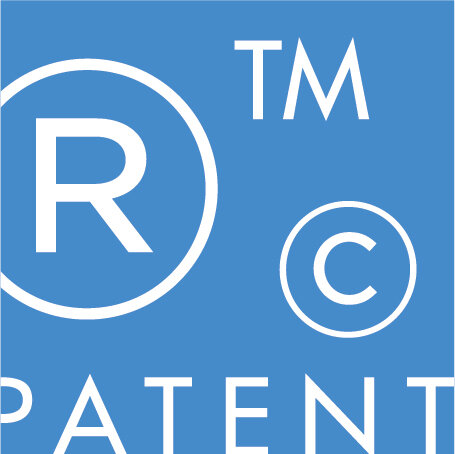NEUTRAL CASE EVALUATOR
WHAT IS NEUTRAL CASE EVALUATION?
Neutral Evaluation* is a dispute resolution technique - at mid-point between mediation and binding adjudication - that can stand on its own or be integrated with other dispute resolution processes such as mediation. Neutral Evaluation is a process in which the parties or their counsel present their cases to a neutral third party (usually an experienced and respected lawyer with expertise in the substantive area of the dispute) who renders a non-binding reasoned evaluation on the merit of the case. This process combines features of both a decision-making and a non-decision-making process. During the process, the neutral may be invited to serve as mediator or facilitator.
The overriding purpose of Neutral Evaluation is to make litigation less expensive for parties by reducing pre-trial costs and enhancing pre-trial practice. Neutral Evaluation attempts to avoid some of the pitfalls of litigation, such as the failure of lawyers and clients to assess their cases early, the uncommunicative pleadings and unnecessary or unfocused discovery, which lead to unnecessary costs and delays. While Neutral Evaluation may include settlement discussions, its broader purpose is to contribute to both the case development and the settlement process.
Neutral Evaluation was originally conceived as a case management tool. It was designed to provide the parties with an early, efficient, and meaningful opportunity to communicate about their dispute; to move them and counsel to meet early to clarify issues and identify areas of agreement; and to realistically assess the relative strengths and weaknesses of their positions, thus encouraging early settlements.
Neutral Evaluation may be initiated at any time in the life of the dispute although an assessment of the case early in the process is often preferable.
Neutral Evaluation is designed to enhance pre-trial practice by:
Encouraging each party and counsel to analyse their situations as early as possible;
Offering the parties an early opportunity to communicate directly about the case and to exchange relevant information;
Providing each party and counsel with an early opportunity to present their positions and hear the other side present its case;
Offering counsel and parties a brief, impartial, confidential, and objective assessment of the relative strengths and weaknesses of their positions and the overall value of the case at an early stage in its evolution; and
Providing the parties with an early opportunity to negotiate settlement with the help of a skilled neutral evaluator, who is an expert in the substantive area of the dispute.
*https://www.justice.gc.ca/eng/rp-pr/csj-sjc/dprs-sprd/res/drrg-mrrc/eval.html#shr-pg0
Neutral Evaluation need not necessarily be undertaken early in litigation. It can take place whenever the parties are mutually interested in settlement and can be combined with mediation on a without-prejudice basis. For example, if the parties cannot come to a mutually acceptable agreement in mediation, they could then empower the mediator to act as an evaluator to soften their positions and move closer to an agreement. Alternatively, the parties could start with an evaluation and then ask the evaluator to facilitate their settlement negotiations.
In addition, Neutral Evaluation need not involve both sides. Even if the other side in an ongoing lawsuit rejects Neutral Evaluation, a litigant might find it useful at some point in the proceedings to retain a neutral evaluator to assess the merits of its case and render an opinion as to the probable outcome if the case were to go to trial.
ACCOLADES
“Ron Dimock is a go-to patent litigator and an all-around superstar”
IP litigation - Who’s Who Legal (2020)
Ron Dimock is a Trademark Luminary and lauded as a trademark “guru” by those in the industry
World Trademark Review 1000 (2022)
The “Dean of the Patent Bar”
Who’s Who Patents (2013)
“Ron might actually be the most experienced patent trial lawyer in the country”
IAM Patent 1000 (2018)
“Chairman of the Board for Canadian Patent Lawyers”
IAM Patent 1000
Inducted into LMG Hall of Fame for Life Sciences Lawyers - September 2018
QUALIFICATIONS
Certified Mediator with the International Mediation Institute -IMI
Certified Arbitrator with the Chartered Institute of Arbitrators - CIArb
Arbitrator with International Arbitration Center Tokyo - IACT
IP Mediator and Arbitrator with Intellectual Property Institute of Canada – IPIC
IP Mediator and Arbitrator with the World Intellectual Property Organization - WIPO
Fellow of the American College of Trial Lawyers - ACTL
Certified Specialist in both Civil Litigation and IP (Patent, Trademark and Copyright) Law
Professional Engineer
Lead Legal Advisor in more than 500 IP disputes
Trial counsel on more than 50 IP trials
Handled more patent lawsuits, conducted more patent trials, and argued more appeals from patent trials than any other lawyer in Canada.
Represented many of the major players in Canadian IP litigation, such as GE, BIC, BlackBerry, Boston Scientific, Xerox, Rogers, Johnson Controls, IBM, Henkel Chemicals, Control Data, CCH, AT&T, Telus, Scott Paper, Noma, Easton Sports, Abbott, Bayer, Novartis, TD, RBC, BMO, Molson’s, Labatt’s, McCain Foods, BMW, Toyota, A&W, Textron, Lubrizol, Teledyne, Pollard, Calgon, P&G, DuPont, and Dow
Editor In Chief - Dimock, Ronald E., Intellectual Property – Disputes, Resolutions and Remedies, Carswell, Thomson Reuters, including chapters on ADR including Neutral Evaluation
“Ron Dimock at Gowling WLG is an all-round superstar in IP litigation with a strong record of representing clients before all levels of the Canadian Courts”
- Patents Who’s Who Legal 2021

